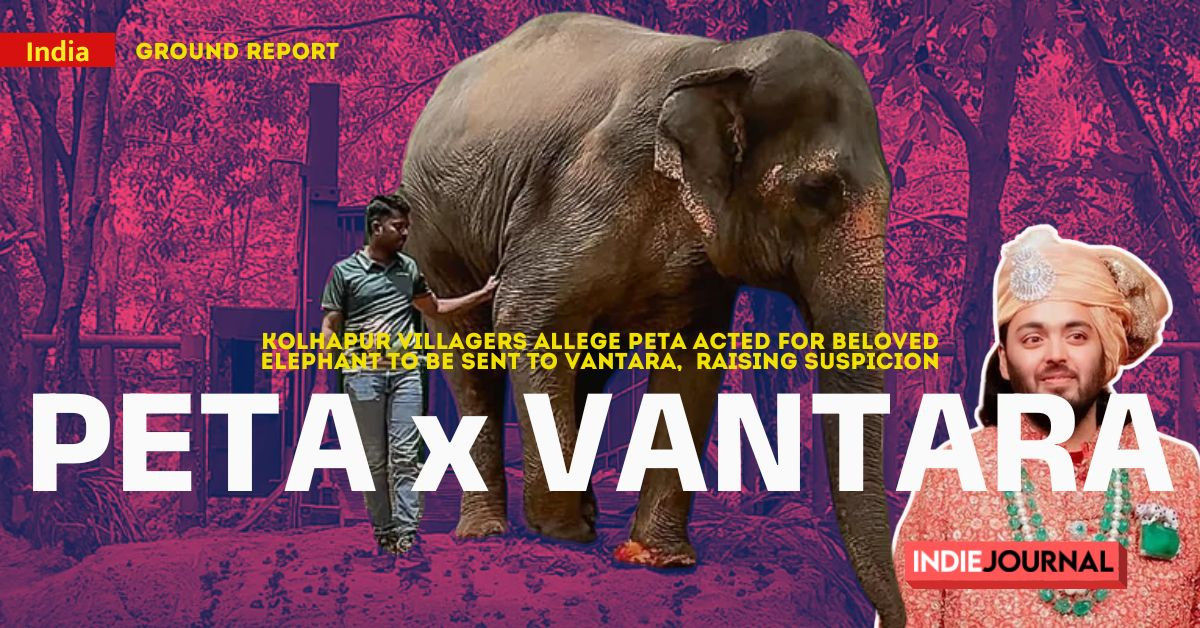India
Activists Denounce Transphobic Pune Police Order
Pune Police issued orders on Wednesday restricting the movement of transgender persons around the city.

Pune: Trans-rights activists in the city have deemed the controversial prohibitory orders issued by the Pune Police Commissioner against transgender persons in the city as 'Transphobic'. Pune Police had issued orders on Wednesday, restricting the movement of transgender persons around the city, as well as them gathering at traffic signals to ask for money.
Activists have questioned if the police have given any thought towards the rehabilitation of the trangender persons, who will be affected by this decision, before issuing these orders suddenly. Meanwhile, the community struggles to understand the implications of the order, in fears of loss of livelihood, coercive action and further stigmatisation.
The Pune Police Commissioner Amitesh Kumar on Wednesday issued prohibitory orders under Section 144 of the Indian Penal Code (IPC), stating, “The transgenders in particular and other such group of people in general singly or jointly are hereby prohibited from moving around the city and visiting places of residences or establishment etc where there are occasions of festivity, marriage, funeral, birth, death in their family etc. without being invited by such members or owners. They are also prohibited from gathering at traffic junctions, chowks and asking money etc from motorists or passersby.”
“Have they thought about the rehabilitation of the people who will be affected by this order? Did they give any prior notice that such an order was to be passed? How can they issue such an order without consulting with any activists who work with the transgender community?” questions transgender activist Chandni Gore.
Her sentiments are shared by several other activists who work with the transgender community in the city.
“In 2014, the Supreme Court decriminalised us. But society has still not accepted us. Transgender people still struggle to get a job. Where is our representation? Where is our reservation? Karnataka Government has given 1 percent reservation to transgender persons in government jobs, we do not have that yet. Then how do the police expect us to make a living?” activist Sonali Dalvi says.
Last year, Amitesh Kumar had issued similar orders in Nagpur, when he was the city police commissioner there, prohibiting transgender persons from visiting homes, events, special occasions or programmes without being invited. The orders were met with protests from the transgender community in the city back then.
While the orders in Pune will only be applicable between April 12 and May 11, the activists fear that these orders set dangerous precedents, which could lead to authorities making such decisions on a much larger scale.
“The order will only lead to increased police harassment of transgender persons and increased stigmatisation of an already socially marginalised community as a ‘dangerous element’,” says Omkar Shinde, Cofounder, Pune Queer Collective.
Several people on social media have been commenting and hailing this order, demanding that the authorities in their respective cities also pass such orders.
#WATCH | Pune: On the issue of Section 144 to ban transgenders for asking money on traffic signals, Pune CP Amitesh Kumar says, "We are issuing an order under Section 144 of the CrPC. We have noticed large-scale nuisance of transgender and beggars, especially on traffic junctions… pic.twitter.com/6dcO67OxA4
— ANI (@ANI) April 11, 2024
“Today, the orders have just been issued in Pune city. Tomorrow, they might be issued in all of the state, or even the country. What should we do then?” Gore adds.
She says that around 99 percent of the transgender persons in the city will be affected by these orders.
The Police Commissioner has cited complaints of alleged ‘harassment and extortion by transgender persons on the streets and houses’ as the reason behind the orders, also saying that their behaviour is found to have been ‘obscene’ and ‘intimidating’ in nature.
“Even if the police think that such incidents are taking place, they could take measures to regulate the transgender persons, for instance, with regard to the maximum amount of money that could be taken at the traffic signals or at an event, instead of prohibiting the transgenders to move around the city or to ask for money from people at the traffic signals. What about all the other people who ask for money at the signals?” Gore asks.
Dalvi says that instead of launching a protest, once she gets hold of the circular issued by Pune Police, she will be sending them a legal notice in this regard.
“I have been getting so many calls since morning, people are scared, they are asking if they can go to jail. There is no clarity, no answers. The government is not giving jobs to anyone, can they actually help the transgenders get a good job? There are many older members in the community as well, who have no other option but to beg. Trangender people need homes, they need pension schemes, shelter homes. The police need to talk to the people in the community, listen to them and try to understand their issues. Instead, they are bringing in these discriminatory orders,” Dalvi says.





